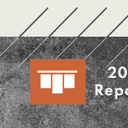The Justice Project has released two new policy reviews about jailhouse snitch testimony and expanded discovery in criminal cases, both topics that are part of the organization’s broader National Agenda for Reform initiative.
Jailhouse Snitch Testimony: A Policy Review offers recommendations and solutions for improving the standards of admissibility of in-custody informant or “snitch testimony.” The review includes an overview of current snitch testimony laws, case studies, information about states and jurisdictions that have enacted successful methods for safeguarding against perjured testimony, voices of support, model policy, and key statistics. The review notes that by improving standards for admissibility of jailhouse informant evidence at trial, states can help ensure that finders of fact are able to make more informed decisions when life and death are at stake. The Justice Project’s key policy recommendations for states considering snitch testimony reform include:
- Written pretrial disclosures of witness compensation arrangements and other information bearing on witness credibility
- Pretrial hearings on the reliability of a particular informant’s testimony
- A requirement that accomplice or in-custody informant testimony be corroborated
- Cautionary jury instructions alerting the jury to the reliability issues presented by snitch testimony.
These new reviews and similar resources on issues such as other criminal justice reform policy reviews on eyewitness identification and custodial interrogation reform, post-conviction DNA testing, standards for capital defense counsel, and prosecutorial misconduct are available online at www.thejusticeproject.org. Hardcopies are available by contacting The Justice Project at info@thejusticeproject.org.
(The Justice Project, September 2007). See also Resources and Innocence.



